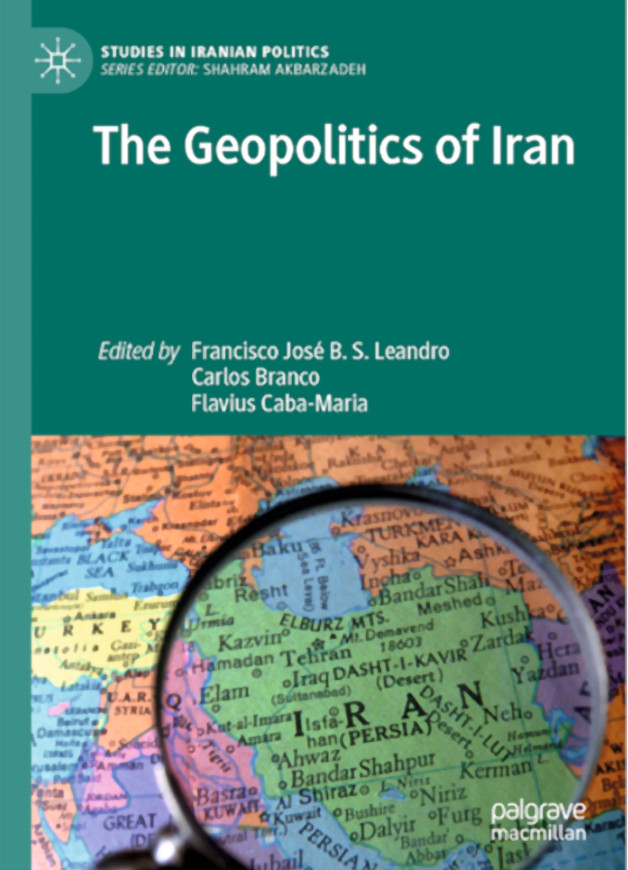The International Financial Institutions: An ajar door to the external financing of Iran

Title: The International Financial Institutions: An ajar door to the external financing of Iran
Author(s): Enrique Martínez-Galán
Publication Date: 2021
Publisher: Palgrave Macmillan
Quotation: Martínez-Galán, E. (2021), "The International Financial Institutions: an ajar door to the external financing of Iran", Chapter 6, in Geopolitics of Iran: Why is it important to the broader Middle East Region? by Leandro, F.J.B.S.; Branco, C. and Cava-Maria, F. (Eds). Palgrave MacMillan.
Abstract: Authored by Enrique Martínez-Galán, "The International Financial Institutions: opening a door to the external financing of Iran" is the chapter 6 of the book "Geopolitics of Iran: Why is it important to the broader Middle East Region?" edited by Leandro, FJBS; Branco, C. and Cava-Maria, F. This book assesses Iran's role in contemporary geopolitics. More concretely, it examines three interrelated main circles: Iran's development and political challenges, its relations with neighboring countries, as well as its relations with major global powers - China, the European Union, Russia, and the United States. It includes contributions from more than 20 authors in areas such as contemporary geopolitics, modern history, natural resources, economics, the political-social context, and strategic thinking. Particular focus is placed on Iran's relations with its neighbors - Afghanistan, Iraq, Israel, Pakistan, and the Persian Gulf States. In addition, the book offers a bilateral and multilateral dimension to how the nuclear sanctions imposed on Iran impacted its strategic planning, from an economic and military perspective. Learn more: https://www.palgrave.com/gp/book/9789811635632
Identifier: DOI: 10.1007/978-981-16-3564-9
Category: Livro
Authored by Enrique Martínez-Galán, “The International Financial Institutions: An ajar door to the external financing of Iran”, chapter #6, is part of the book “Geopolitics of Iran: Why is it important to the broader Middle East Region?”, which undertakes an examination of the role of Iran in contemporary geopolitics.
Abstract:
While two of the largest International Financial Institutions (IFIs) in the world, namely, the Islamic Development Bank and the Asian Infrastructure Investment Bank, still finance or are planning to finance infrastructure projects in Iran, other two of the largest IFIs, namely, the World Bank Group and the Asian Development Bank (ADB), have been vetoing any financing or participation of Iran in its governance, respectively, under the manifest influence of the United States (U.S.). Besides, the European Investment Bank, the so-called bank of the European Union, managed to resist strong pressures from France, Germany and the United Kingdom back in 2018 to create a special purpose vehicle that could allow the EU to circumvent U.S. sanctions and continue financing projects in Iran. It is interesting to note that international relations were once very different. In fact, Teheran was one of the three candidate cities to host the headquarters of the ADB back in the 1960s. We will discuss in this chapter the role played by IFIs in Iran, and vice-versa. We will frame the discussion in the theoretical frameworks of financial statecraft (Steil and Litan in Financial statecraft: The role of financial markets in American Foreign Policy. Council of Foreign Relations and the Brookings Institution, New Haven and London, Yale University Press, 2006) and of soft power (Nye in Annals of the American Academy of Political and Social Science 616: 94–109, 2008; Nye in Foreign Affairs 88 (4) (July–August): 160–163, 2009). Furthermore, we will show how, despite the U.S. sanctions, the Iranian economy still manages to obtain financing from IFIs. Finally, we will also debate the relevance of the IFIs in the context of the external financing of the Iranian economy. Looking forward, we will draw scenarios for the future relationship of Iran with the IFIs.
About the book:
Geopolitics of Iran: Why is it important to the broader Middle East Region? assesses Iran’s role in contemporary geopolitics. Specifically, it examines three main circles that are related: Iran’s development and political challenges, its relations with neighbouring countries, as well as its relations with the major global powers – China, the European Union, Russia and the United States. It includes contributions from over 20 authors in areas such as contemporary geopolitics, modern history, natural resources, economics, the political-social context and strategic thinking. Particular focus is placed on Iran’s relations with its neighbours – Afghanistan, Iraq, Israel, Pakistan and the Persian Gulf states. In addition, the book offers a bilateral and multilateral dimension on how the nuclear sanctions imposed on Iran have impacted its strategic planning from an economic and military perspective.
Access the book:
https://www.palgrave.com/gp/book/9789811635632





